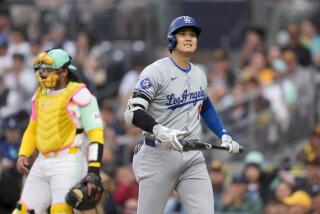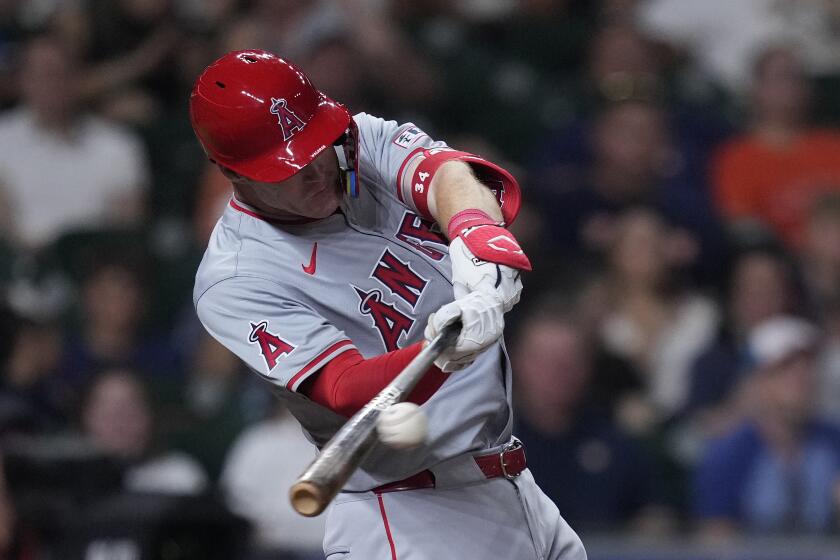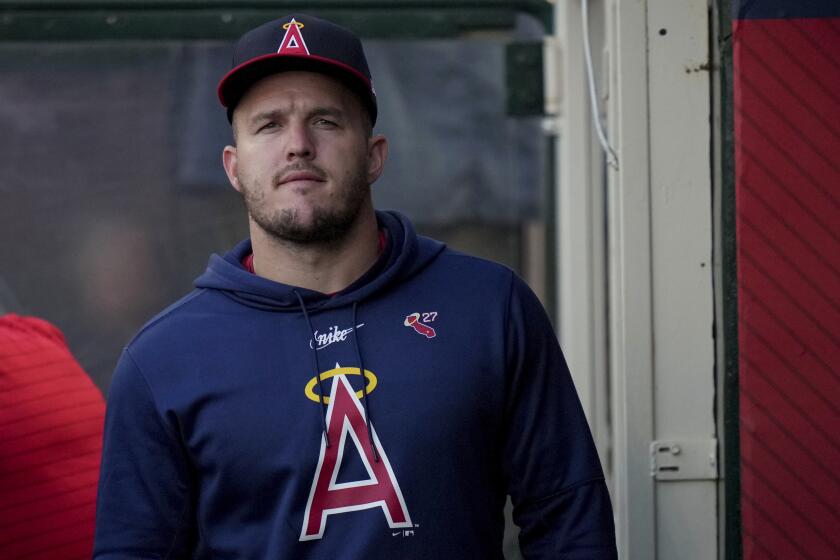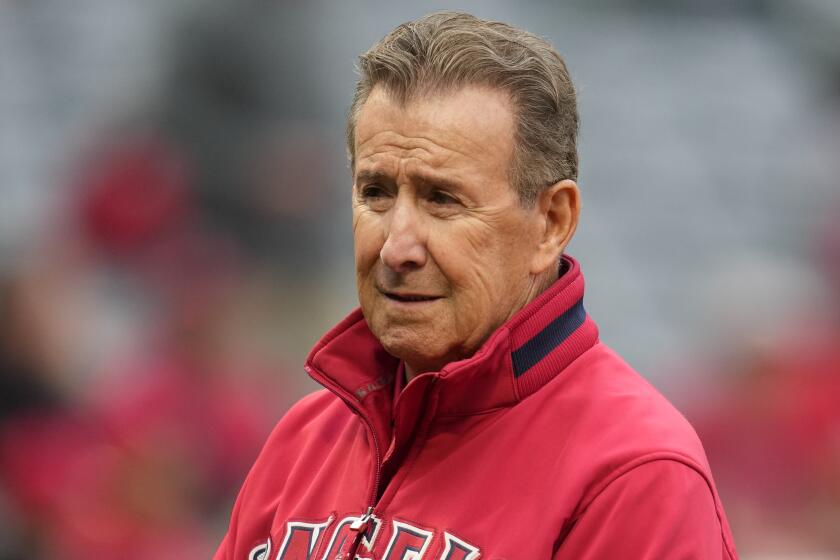Angels’ Joe Smith gives up four runs in 10th inning in loss to Padres
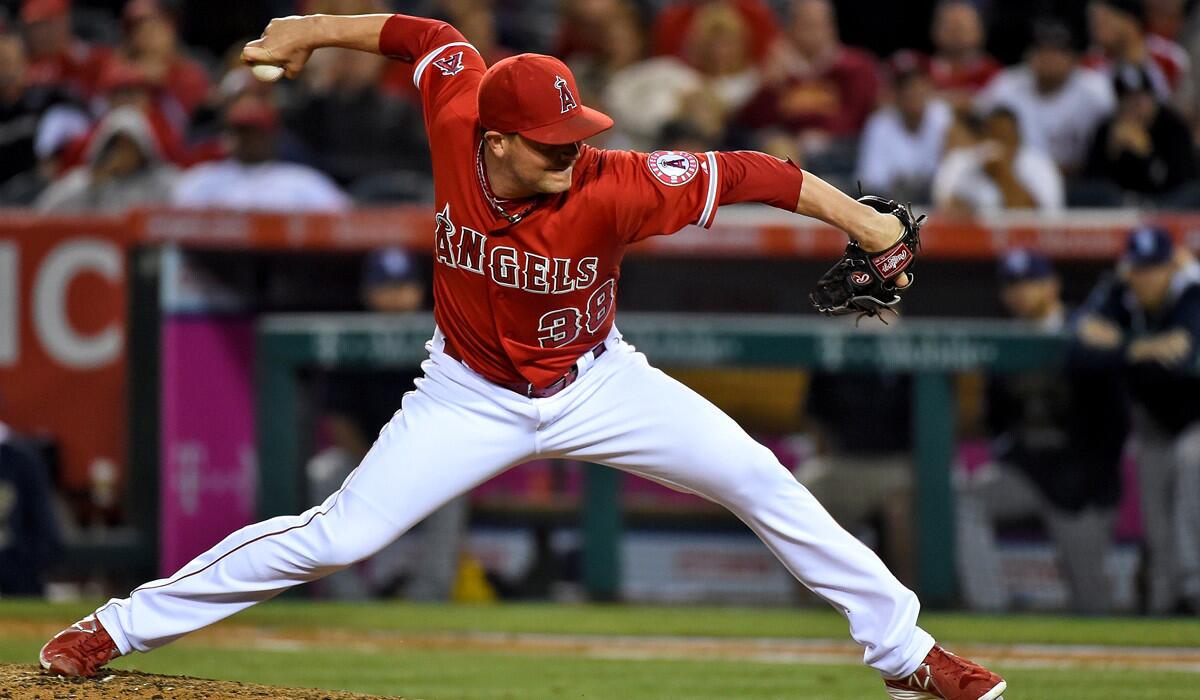
The Angels’ bullpen might be muddled in the middle, but order has been established at the end. Joe Smith gets the eighth inning. Huston Street, the closer, gets the ninth.
Is there really that much of a difference between getting three outs and getting four, or getting six?
These days, there is. On the night after Smith got six outs to earn the victory, he got two outs and took the loss.
After the Angels and San Diego Padres played nine scoreless innings Tuesday, the Padres tagged Smith for four runs in the 10th inning and tagged the Angels with a 4-0 loss.
Matt Kemp, who entered the game with a .195 slugging percentage this month, broke the tie with a bases-loaded double. The Angels, shut out three times last season, have been shut out four times in 46 games this season.
The question of how the Angels might best use Smith arose after Monday’s game. They would not use him in the seventh inning, not even to get one out.
With a 3-0 lead and two out in the seventh, the Angels summoned Jose Alvarez rather than Smith. Alvarez faced three batters, and the Padres scored three runs.
If Smith really had been limited to one inning, well, the Angels made the best of it. But, after he pitched a scoreless eighth and the score remained tied, Smith pitched a scoreless ninth as well.
So, if the Angels had let Smith get one out in the seventh, they would not have needed him for three outs in the ninth. Street would have tried for the save, and Smith would have gotten four outs instead of six.
This might sound needlessly restrictive, but for good reason, according to Smith and Angels Manager Mike Scioscia.
Smith is durable and resilient. He has appeared in at least 70 games for four consecutive seasons, and he ranks in the top 10 in appearances this season. His career high for innings: 742/3.
“I don’t think I’ve ever seen a pitcher get in 70 games and throw 140 innings in my career,” Smith said.
The eighth inning belongs to Smith. According to Scioscia, the preceding inning — or the ensuing inning –—rarely should.
“At times, we can expand him out of the eighth-inning bubble,” Scioscia said. “There has to be a limit to what he can do and maintain his stuff.”
Smith, 31, has pitched in 536 games in his nine-year career, all in relief. The number of times he has pitched two innings or more: 15. His career high: 22/3 innings.
He said his ability to pitch on back-to-back days, or on three consecutive days, is dependent on how many pitches he throws in his inning.
“I haven’t had a problem if I stay under 15 pitches,” he said. “It’s when I get up over 20 that it becomes an issue.”
Smith threw a total of 24 pitches in his two innings Monday. He threw 20 in his two-thirds of an inning Tuesday. He faced six batters each night.
“I feel good,” he said before Tuesday’s game, “like I just had a long inning yesterday. Sometimes it’s hard when you’re not used to it.”
No short reliever is used to a six-out workload, preposterous as that might seem to old-school fans.
The Dodgers’ Mike Marshall won the National League Cy Young award in 1974, making 104 appearances and pitching 208 innings — all in relief.
Smith pitching even half that many innings? Not in today’s game. He might be the Angels’ best option to handle the seventh and eighth innings, but he could not even guess at how his arm might bounce back if he tried. “Two innings?” he said. “I don’t do it enough to tell you.”
Twitter: @BillShaikin
More to Read
Go beyond the scoreboard
Get the latest on L.A.'s teams in the daily Sports Report newsletter.
You may occasionally receive promotional content from the Los Angeles Times.


